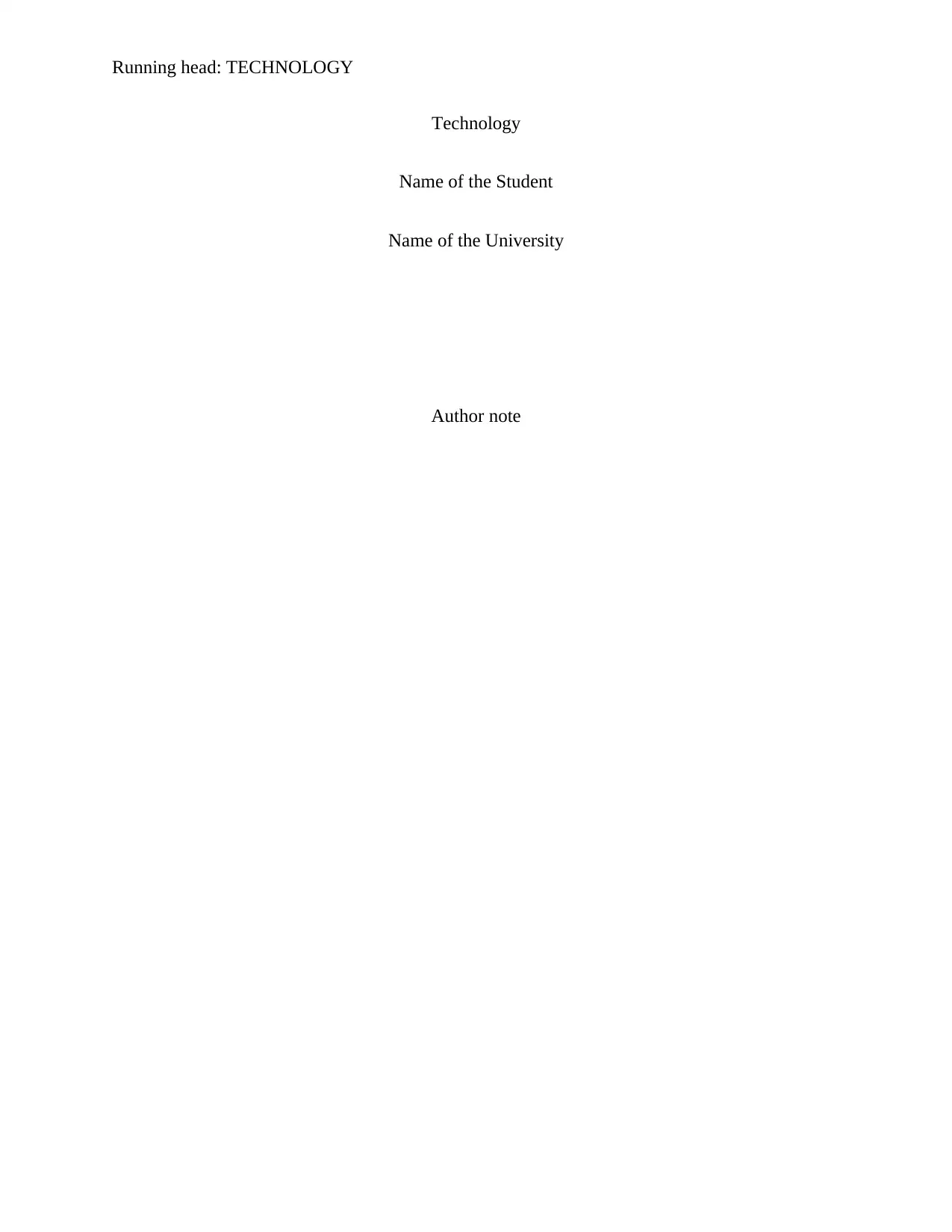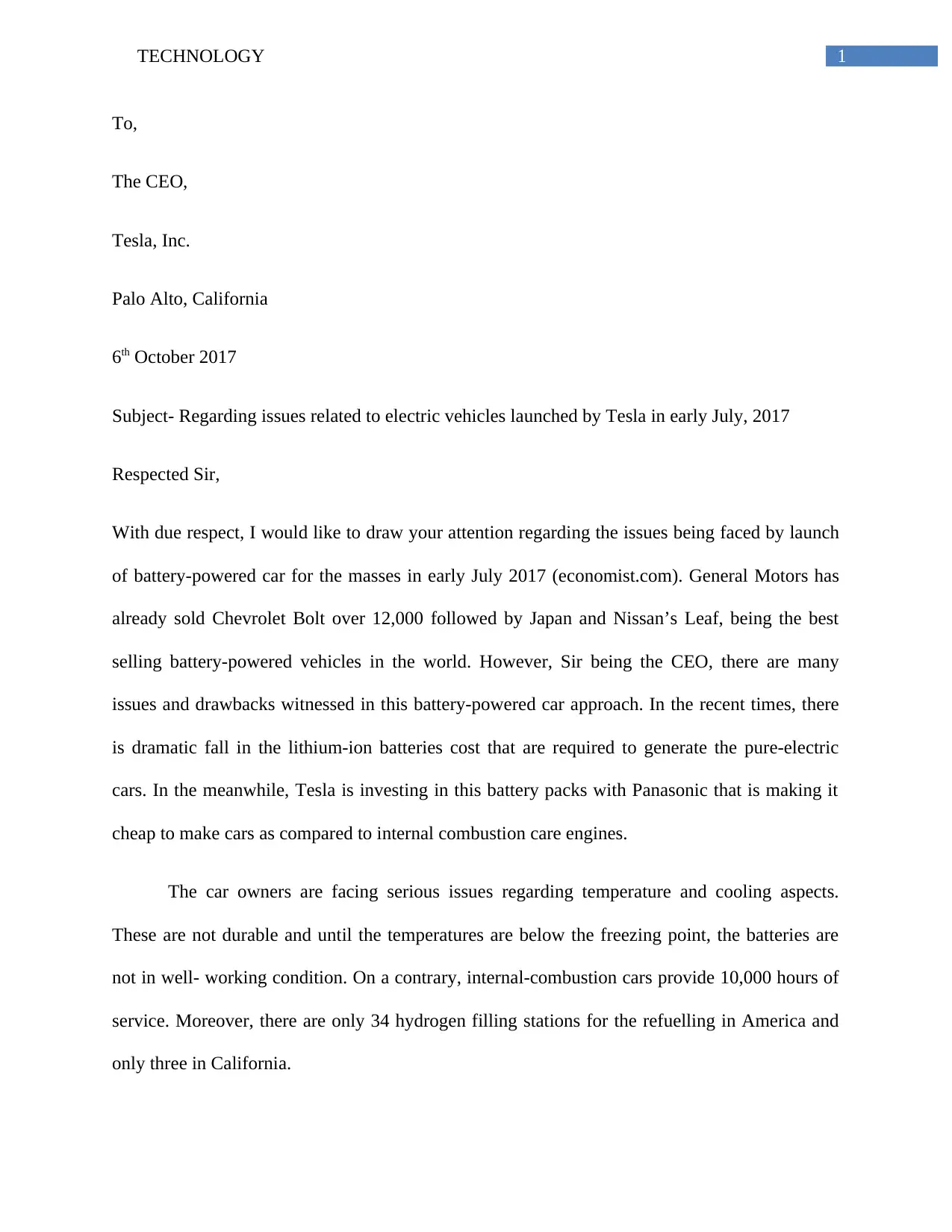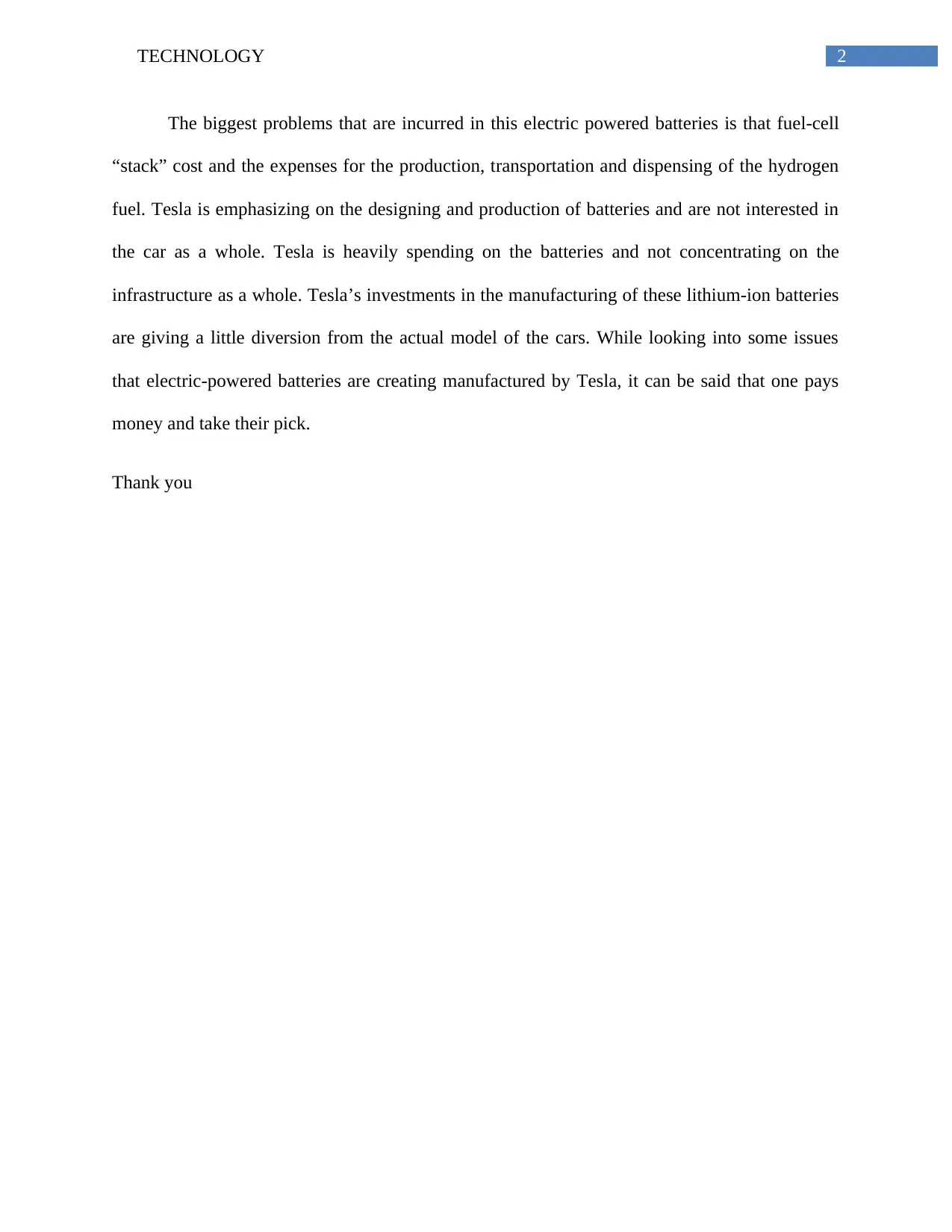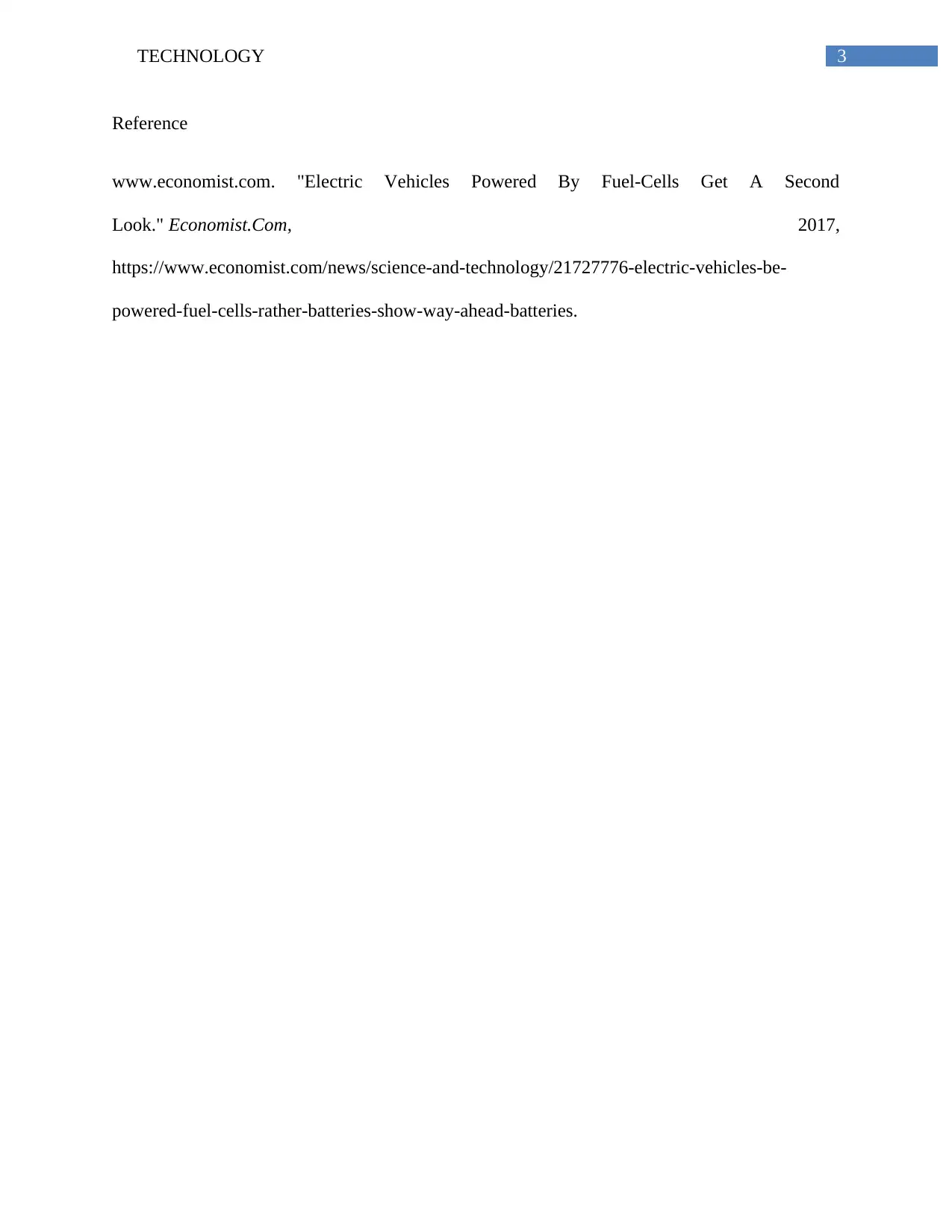Tesla Electric Vehicle Report: Addressing Key Issues and Challenges
VerifiedAdded on 2020/03/16
|4
|397
|44
Report
AI Summary
This report addresses the challenges faced by Tesla's electric vehicles, focusing on issues related to battery technology and infrastructure. It highlights the problems with lithium-ion batteries, including temperature sensitivity and limited lifespan compared to internal combustion engines. The report also discusses the lack of hydrogen fueling stations and the high costs associated with fuel-cell technology. It emphasizes Tesla's focus on battery production and the need for broader infrastructure development. The author suggests that despite the advancements, there are significant drawbacks to the current electric vehicle model, urging Tesla to address these issues for future success. The report is based on information from the economist.com.
1 out of 4











![[object Object]](/_next/static/media/star-bottom.7253800d.svg)